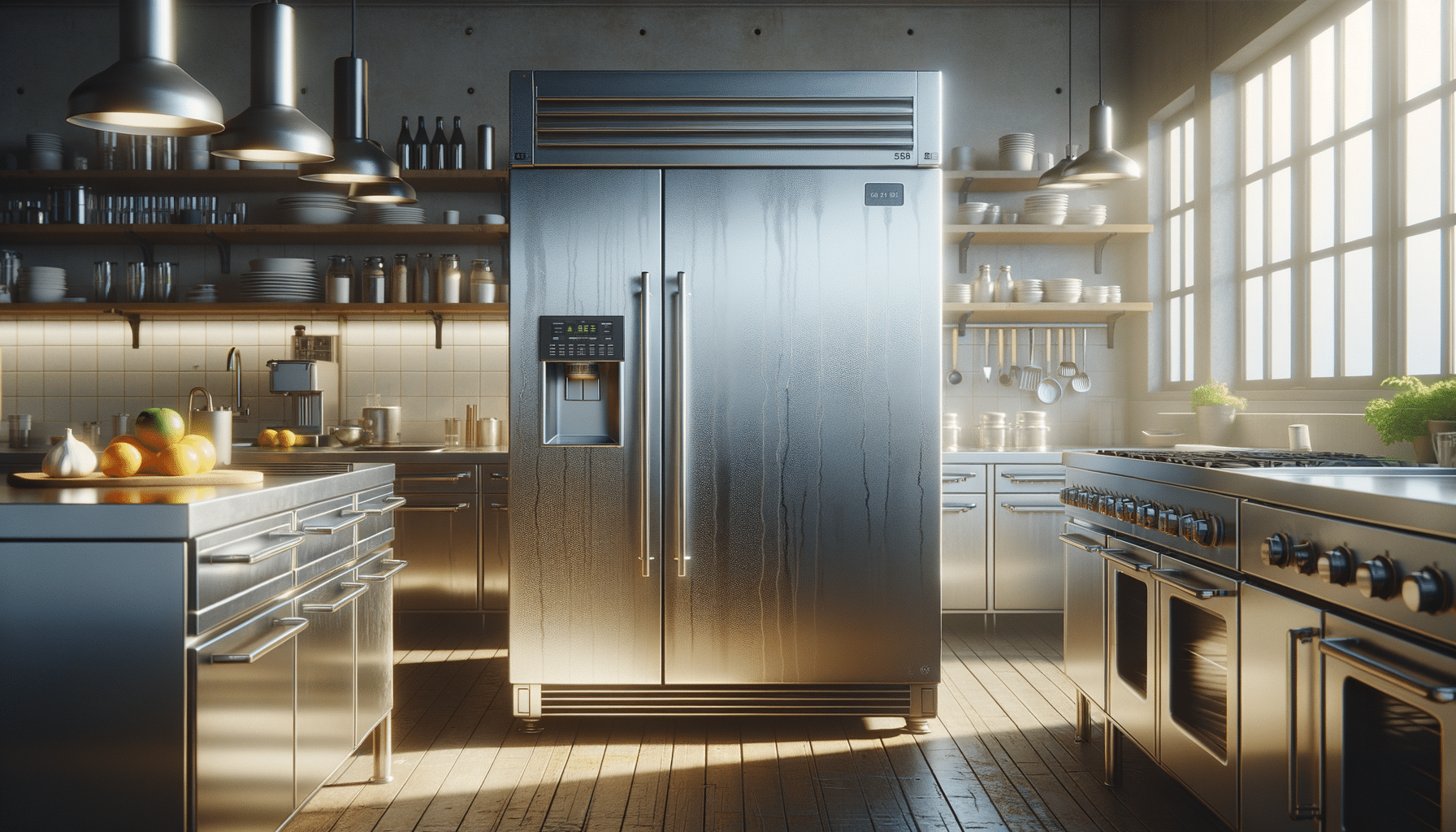
Learn more about Commercial refrigerator
The Role of Commercial Refrigerators in Modern Businesses
Commercial refrigerators play a crucial role in various industries, particularly in food service and retail. These appliances are designed to store perishables at optimal conditions, ensuring freshness and safety. From restaurants to supermarkets, commercial refrigerators are indispensable for maintaining quality and compliance with health regulations.
In the food service industry, maintaining the right temperature is essential to prevent spoilage and foodborne illnesses. A commercial refrigerator provides consistent cooling, which is vital for storing a wide range of products, from raw ingredients to prepared meals. These appliances are engineered to handle frequent door openings, which is common in busy kitchens.
Moreover, in retail settings like grocery stores, commercial refrigerators are used to display products attractively while keeping them fresh. This enhances the shopping experience and can lead to increased sales. The reliability and efficiency of these units are paramount, as any failure can lead to significant financial losses due to spoiled inventory.
Overall, commercial refrigerators are a critical investment for businesses aiming to deliver quality and safety to their customers. They are not only about preserving food but also about enhancing operational efficiency and customer satisfaction.
Types of Commercial Refrigerators and Their Applications
The variety of commercial refrigerators available today caters to the diverse needs of businesses. Each type serves a specific purpose, ensuring that businesses can find a unit that meets their specific requirements.
One of the most common types is the reach-in refrigerator, which is ideal for restaurant kitchens where space is limited. These units offer easy access to frequently used ingredients and are designed to maintain consistent temperatures despite frequent door openings.
Walk-in coolers are another popular option, offering more storage space and are typically used in larger establishments. These are perfect for storing bulk items and are often found in supermarkets and large restaurants. Their design allows for easy organization and access to inventory.
Display refrigerators, on the other hand, are essential in retail environments. These units not only keep products cool but also showcase them to customers. They are often used for beverages, dairy products, and ready-to-eat meals.
Each type of commercial refrigerator is designed with specific features to enhance efficiency and convenience, making them an integral part of any business dealing with perishable goods.
Energy Efficiency and Environmental Impact
With growing awareness of environmental issues, energy efficiency has become a significant factor in choosing commercial refrigerators. Modern units are designed to minimize energy consumption while maximizing cooling efficiency, which is beneficial for both the environment and business operations.
Energy-efficient commercial refrigerators often come with advanced features such as improved insulation, high-efficiency compressors, and LED lighting. These innovations help reduce electricity usage, leading to lower utility bills and a reduced carbon footprint.
Moreover, many of these refrigerators use eco-friendly refrigerants that have a lower impact on the ozone layer compared to traditional options. This shift towards sustainable technologies reflects the industry’s commitment to environmental responsibility.
Businesses that invest in energy-efficient commercial refrigerators not only contribute to environmental conservation but also enjoy long-term cost savings. As energy prices continue to rise, the initial investment in such appliances can lead to significant financial benefits over time.
Maintenance and Longevity of Commercial Refrigerators
Proper maintenance is key to ensuring the longevity and optimal performance of commercial refrigerators. Regular maintenance can prevent costly repairs and extend the life of the appliance, making it a worthwhile investment for any business.
Routine tasks such as cleaning the condenser coils, checking door seals, and defrosting the unit are essential to maintain efficiency. Dirty coils can cause the compressor to work harder, leading to increased energy consumption and potential breakdowns.
Ensuring that door seals are intact prevents cold air from escaping, which is crucial for maintaining the desired temperature and reducing energy waste. Regular defrosting helps prevent ice build-up, which can affect the unit’s cooling capacity.
Additionally, scheduling professional maintenance checks can help identify potential issues before they become major problems. Technicians can conduct thorough inspections and make necessary adjustments to keep the refrigerator running smoothly.
By prioritizing maintenance, businesses can ensure that their commercial refrigerators operate effectively, safeguarding their investment and supporting their operational needs.
Choosing the Right Commercial Refrigerator for Your Business
Selecting the appropriate commercial refrigerator involves considering several factors to meet the specific needs of your business. The type of products you need to store, the available space, and energy efficiency requirements should all influence your decision.
Start by assessing your storage needs. Determine the volume of products you need to refrigerate and choose a unit that offers sufficient space. Consider future growth to avoid the need for additional purchases.
Space constraints should also be considered. Measure the area where the refrigerator will be placed, ensuring there is enough room for ventilation and easy access. For businesses with limited space, compact units like reach-in refrigerators may be ideal.
Energy efficiency is another critical factor. Look for units with energy-saving features and eco-friendly refrigerants. These options not only reduce environmental impact but also offer long-term cost savings.
Finally, consider the reliability and reputation of the manufacturer. Choosing a well-regarded brand can provide peace of mind and ensure that you have access to support and replacement parts if needed.
By carefully evaluating these factors, you can select a commercial refrigerator that supports your business operations and aligns with your sustainability goals.


